There are so many ways to use frequent flyer points. But when it comes to actually flying, there’s an age-old question. Is it better to use those points to book your flight, or should you purchase a ticket with cash and spend those points on an upgrade instead?
It’s fair to say, the ‘best’ option will vary from person to person. We all travel for different reasons and in different ways. The most appealing path for a frequent business traveller stuck purchasing Economy Class tickets for work could be very different from an occasional leisure flyer who needs to travel in comfort.
There are many things to consider. But when it comes to spending my own frequent flyer points, I’ve long relied on a simple mantra. Upgrades are great on business trips, while using points to book flights works best on personal travel. After all, flying for work often means having to book flights in a certain way. Buying a cash fare for an employer or client to reimburse, for instance. But holidays come with a lot more flexibility.
In this article, we’ll look at the pros and cons of each opportunity, and which could suit your own travels best.
When to book flights using points
Spending your points on flights is a great way to go. Personally, I’m even okay using points to book Economy on domestic routes. But when flying abroad, having a nicer seat – more room to move, and a more comfortable sleep – can work wonders. Here’s what I like about it, along with some of the drawbacks.
Advantages of spending points on flights
The biggest upside to booking your ticket with points is that you get a confirmed reservation for the flights you want, in the cabin you want. You’re not settling for a lower cabin class and keeping your fingers crossed – you’re nabbing a confirmed seat right from the get-go.
Ultimately, this means saving cold hard cash. Rather than paying full fare, you’re only paying the taxes, fees, and sometimes, carrier charges on the ticket. Your points cover the rest. That’s more money left over to spend on hotels and sightseeing.
Speaking of saving money, using points provides the best value when flying one-way internationally. Usually, paid one-way flights cost around 70% of a return overseas ticket. But when using points, a one-way booking only commands 50% of the points required for a round trip ticket. This also means you can mix and match points from different programs across the journey. That’s handy if you can only secure an outbound flight with one type of points, and the inbound sector via another program.
If you’re flying Qantas and are a Qantas Points Club member, spending Qantas Points on QF-coded flights also allows you to earn Status Credits. And rather happily, you’ll earn more Status Credits on a Business Class reward booking than a paid ‘discount Economy’ fare on the same flight. This makes it easier to gain or maintain frequent flyer status.
For those with elite Velocity status instead, using points to book seats on Virgin Australia flights unlocks considerable flexibility. For Velocity Gold and Platinum members, Virgin Australia domestic reward tickets are eligible for Fly Ahead. This means free same-day flight changes – even onto flights with no reward seat availability. On paid airfares, Gold members would only get the same flexibility when purchasing fully flexible Economy (or Business Class).
Disadvantages of spending points on flights
Using points to book flights comes with many upsides. But there are some counterpoints to be aware of too.
For one thing, because you’re not paying a cash airfare, you’ll usually need significantly more points to book a flight outright, versus the number of points needed to upgrade on that same route. And for that matter, finding reward seats can often be tough – especially for travel in premium cabins on long-haul flights.
Even if you can find reward seats to suit, they may not be on your most ideal flights. You might need to travel on an alternative date to get the non-stop flight you’ve been eyeing off. Or if your schedule isn’t flexible, a connecting flight might be your only option – a flight you might otherwise shy away from booking when buying a regular fare.
Services like Point Hacks Concierge can help find the best available reward seats to suit your plans, but you’re still limited by what airlines choose to make available.
Using points to book flights is also much harder to navigate on business trips. It’s one thing if your employer has a Qantas Business Rewards (QBR) account and uses its QBR balance to provide the points needed for your journey. But many companies (and clients) have rigid travel policies and require bookings to be made a certain way. This also usually means purchasing a specific type of fare.
And hey, even if you did use personal points to book a work trip, how would the company fairly reimburse you? Using points can make things complicated when it doesn’t need to be. That’s where upgrades come in handy instead.
When to upgrade flights using your points
Speaking of business trips, this is where flight upgrades come into their own. You (or your employer) can still book your flight as normal – following all the correct procedures and buying the approved fare type. But once the booking is issued, your points are your ticket to a better experience. Here’s how that works.
When flight upgrades are a good choice
As an example from my own business travels, I’ve recently flown from Sydney to Singapore with Qantas. The nature of the trip allowed me to book and expense a flexible Economy airfare. But once the approved ticket type was issued and paid for, my points helped me get something better.
Using Qantas Points, I could waitlist an upgrade to Business Class. And in fact, given it was flexible Economy rather than a cheaper ticket, the upgrade itself cost fewer than 30,000 Qantas Points – for a bed on an eight-hour flight. I’d even strategically booked QF1 – an Airbus A380 flight – knowing there’d be many more Business seats on the aircraft. I figured this would help my upgrade changes. And, sure enough, I was right.
Read: Qantas Airbus A380 Business review (Sydney – Singapore)
As well, upgrades like this don’t require reward seat availability in that higher cabin – so there’s more opportunity for flying in comfort and style. For that matter, upgrades are the next-best option when reward flight bookings just aren’t available. Buying a cash Economy ticket and using points for an upgrade still beats staying put down the back.
As well, upgrades generally require fewer points than outright reward bookings for the same flight and cabin. This means people with smaller points balances can turn them into flatbeds through the upgrade process, where they wouldn’t be able to when booking outright.
In some cases, upgrades can also be confirmed from the moment the flight is booked. With Qantas and Virgin Australia, this is true of many domestic flights. Usually, upgrades can be processed immediately, provided that a Business Class reward seat is open for booking on the same flight. This avoids the uncertainty seen with some other upgrade requests.
When flight upgrades aren’t so great
Speaking of chance, many upgrade requests come down to exactly that. Getting an upgrade on an international flight can be something of a lottery. The odds are stacked in your favour if you have shiny frequent flyer status. But it’s never a sure thing.
Remember that Sydney-Singapore journey, where I snagged that upgrade to Business? I wasn’t so lucky on the way back – and had to fly overnight in Economy to get home, because that’s the ticket I’d booked.
Even if you’re upgraded, you may not be guaranteed the full catering of that higher cabin class. Usually, this happens when your request is processed last-minute, like in the lounge or at the boarding gate. In practice, your meal request is taken last from anything that’s still available. You’d rarely go hungry, but your first preference may be long gone.
As well, even though you’re spending extra points to fly in a better cabin, you’ll only earn points (and Status Credits) in line with the flight you originally booked. This means earning rewards at the Economy rate when you’ve upgraded from Economy, for instance. And for that matter, this is still true for Qantas Points Club members. You don’t earn the Status Credits of the upgraded cabin – even at the reduced Points Club rate. You earn in line with your original flight.
When upgrading your flight, you’ll also need to upgrade every passenger on the booking. You can’t simply select one flyer to enjoy the high life while everybody else remains down the back. Some airlines, like Qantas, allow you to easily move yourself onto a separate booking to facilitate an upgrade. But this may be tricky if your employer is managing the ticket or it’s been handled via a travel agency.
Summing up
As you can see, when it comes to the ‘best’ path for using points, there’s no single right answer. Different people fly for different reasons, and under different circumstances. Even my own mantra – upgrades for business trips, outright bookings for leisure trips – gets broken from time to time, to do what feels best.
Still, there are some takeaways. Those who’d mostly fly for leisure could prefer to save up their points and use them to book a dream getaway. Having the security of knowing which cabin you’ll be flying could even be helpful in getting into the holiday mindset, knowing the trip will get off to a great start.
Business travellers, on the other hand, may be hamstrung by their company’s travel policy. In which case, letting the company book the fare it’s willing to pay for can be a good start. From there, using your own points to get an upgrade keeps you happy, without the employer spending an extra cent to provide that better experience.
When flying for work though, just check if your employer has any rules or guidelines around upgrades before diving in. Many companies won’t take issue with you using your own resources (points) to make your own work journeys better. Especially if that means arriving better rested at the other end. But some employers – especially for government workers – can have more stringent policies, so just ask.
Also read: Why I happily spend (some of) my points on domestic Economy
Feature image courtesy of Qantas.
Stay up to date with the latest news, reviews and guides by subscribing to Point Hacks’ email newsletter.
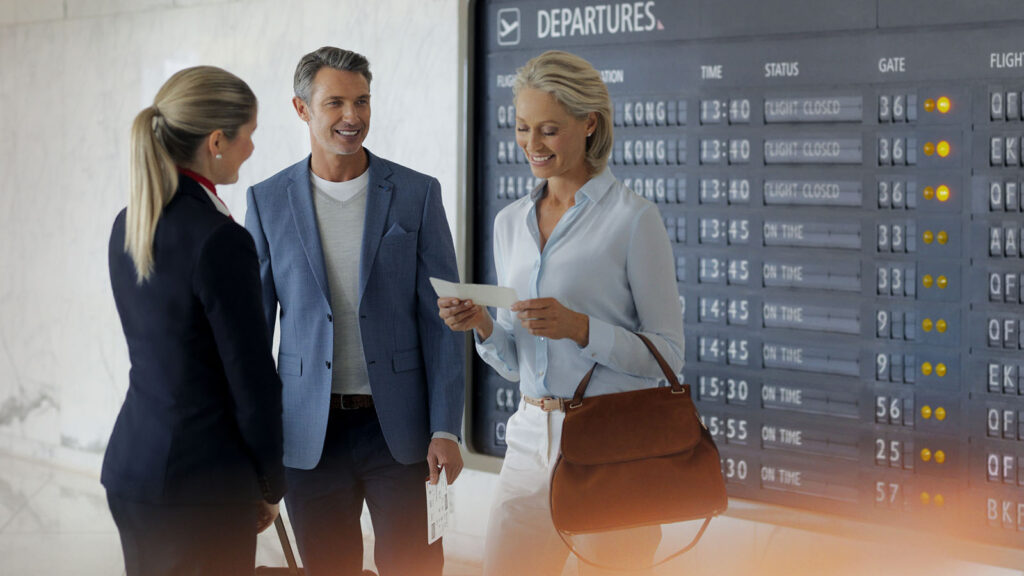
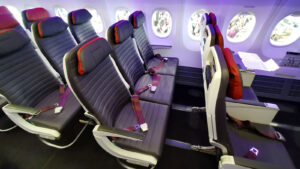
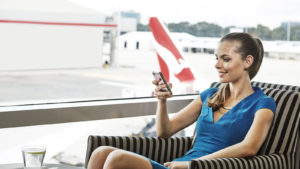
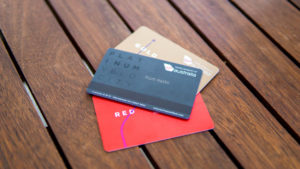
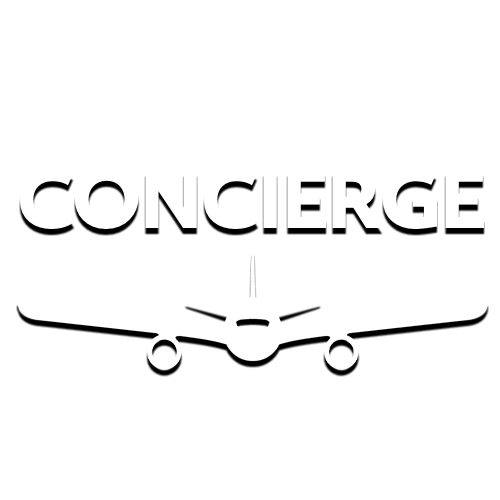

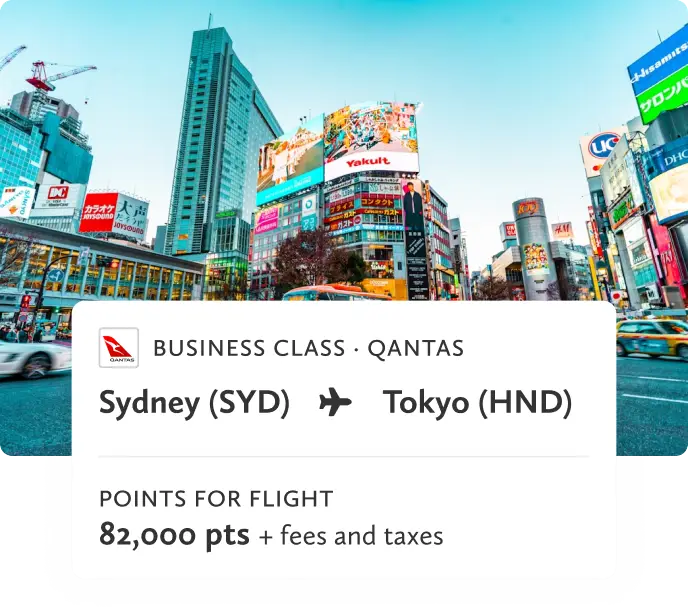
Wow. Just last month they charged me 58000 points to upgrade to business on Singapore to Melbourne.
Many discount economy fare classes don’t allow it and even if you do, all the ones that you DO want to fly (long haul international) are full of Plats and Golds who can and will snipe the upgrade at the last minute that you thought you were going to get, assuming there are even any available on that flight. Don’t bother playing the upgrade lottery, you might as well book outright if your status isn’t high.